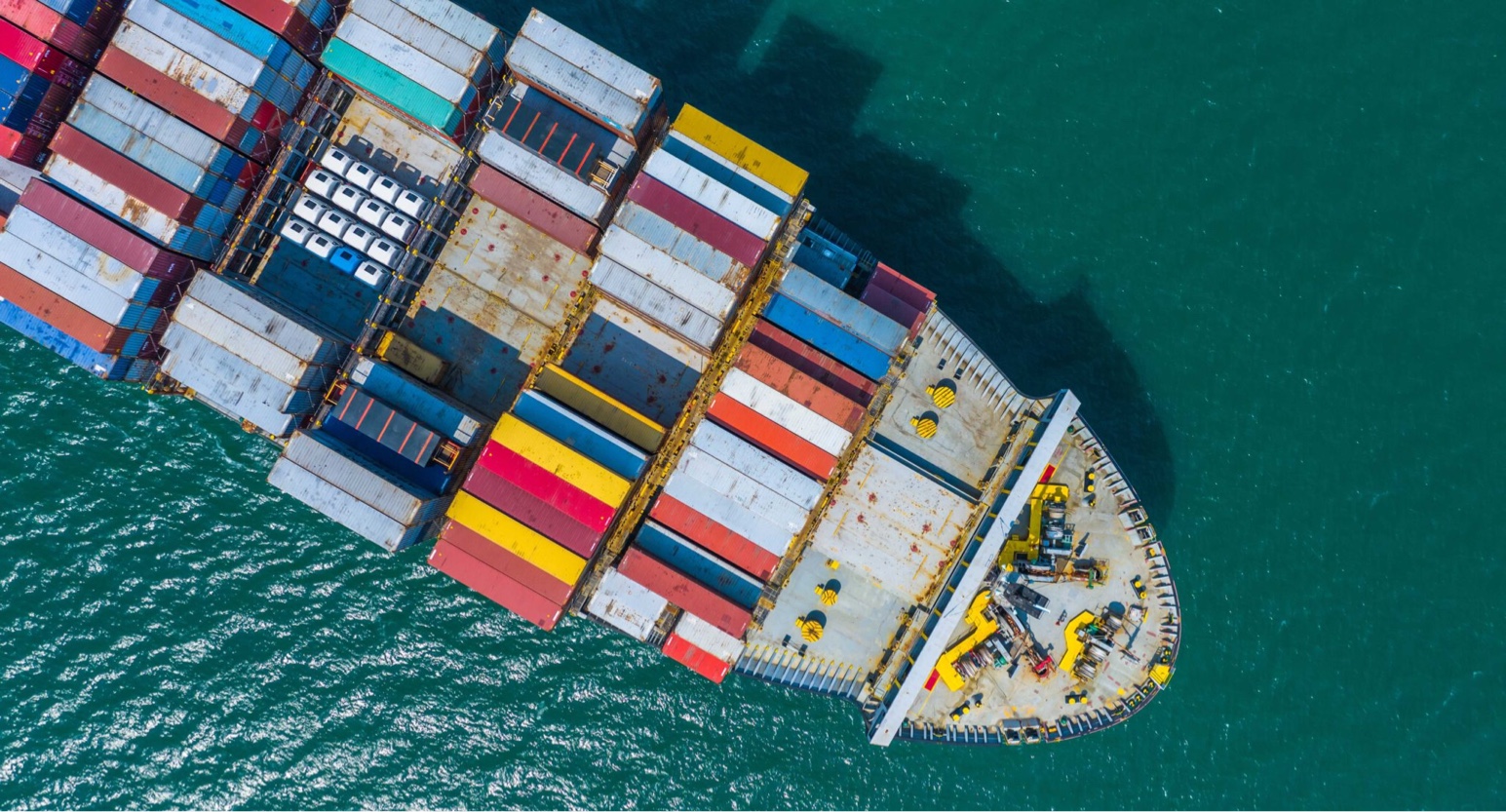“The main aims of the Cyprus Shipping Association are the provision of high-quality services by the shipping agent and the strict adherence to high ethical standards promoted by the association, the protection of the professional rights of its members and the promotion of their common business interests, and the prosperity and growth of Cyprus as a maritime centre and a transshipment hub.”
Please introduce yourself, and your role within your organisation.
“As Chairman of the Cyprus Shipping Association since 2021, my role is to align, promote and safeguard the common interests of our members, representing their principals whose chartered/liner vessels call at our local ports and port establishments, to provide service to our local trade/economy, cruise/passengers and the oil and gas sectors.”
When was the association established, and what are your key objectives?
“The Cyprus Shipping Association (CSA) was established in 1945 to provide a professional forum for shipping agents in Cyprus. In 1959, following its registration under the provision of the local Trade Unions Law, the CSA became the representative of the profession of the shipping agent in Cyprus. The members of the association are the leading and long-established shipping agencies in the island.
“The main aims of the Cyprus Shipping Association are the provision of high-quality services by the shipping agent and the strict adherence to high ethical standards promoted by the association, the protection of the professional rights of its members and the promotion of their common business interests, the prosperity and growth of Cyprus as a maritime centre and a transhipment hub, the originating and promoting of improvements in the ports of Cyprus and in the laws affecting the profession as well as the shipping and port industry of the island, the presentation, promotion and implementation of the views and opinions of the shipping agents of Cyprus, and the promotion of the cruise and the oil and gas sectors.”
How does your organisation act as a voice on behalf of its members?
“As the spokesman for the shipping agents in Cyprus, the CSA ensures that its voice is heard on public issues affecting its members and contributing to the solution of all their problems. The Association also acts as liaison, negotiator, and representative for its members in their dealings with the government, legislature, port authorities, Department of Customs, port operators, business community, and the trade unions and all other interested parties.
“With the shipping agent being actively involved in the operation and marketing of the Cyprus Ports, the CSA plays an important role in port affairs, taking part in the formation of policies applied and the solution to problems arising. The Association maintains close links with other local and international professional bodies pursuing common objectives. Its international affiliations include membership of the Federation of National Associations of Ship Brokers and Agents (FONASBA), Baltic and International Maritime Council (BIMCO), and the International Cargo Handling Coordination Association (ICHCA). At local level, it is a member of the Cyprus Shipping Chamber of Commerce and Industry (C.C.C.I) and the Employers and Industrialists Federation of Cyprus (E.I.F.).

“The Cyprus Shipping Association further provides its members with a platform for the exchange of professional experiences of common interest and acts as a centre for the collection, evaluation and distribution of information on local and international developments relevant to the profession and the port industry in general.”
Cyprus has successfully built a diversified and robust maritime industry, which offers a unique set of competitive advantages. Why should international shipping companies and investors consider Cyprus as a shipping hub?
“Cyprus today is considered a leading maritime centre with approximately 180 shipping and shipping-related companies located in Cyprus. The continuous provision of incentives, competitive business, and taxation environment, helps Cyprus to maintain its prominent position in global shipping, which is expected to be further improved and developed in the future.
“Cyprus has a competitive advantage with regards to the prevailing legal system closely modelled on the British counterpart, an efficient civil service, good labour relations, a very high level of professionalism in the legal and accounting sectors, excellent banking system, state-of-the-art telecommunications and air links to all important destinations, and availability of competent local employees combined with an excellent shipping infrastructure.”
What are the specialised requirements and needs of shipping companies?
“Operating within an everchanging and mostly dynamic industry with very cyclical trends, shipping companies are constantly forced to adapt and evolve. Likewise, to act and be able to compete in such an environment offering tailormade solutions to their clients, shipping companies ought to follow up with latest technological, social, and environmental demands of the market and work with people of a certain skill and mindset. Shipping companies require fast operations, zero delays and lowest possible port/labour costs.
“Our recently formed Shipping Deputy Ministry, in collaboration with other public and private institutions, is doing a lot to enhance and promote shipping culture within our island, specifically amongst the younger generations. The latest initiative to create a specialised “one-stop-shipping-centre” at the Shipping Deputy Ministry, acting independently of other government departments, is something which is greatly welcomed by all shipping stakeholders of the island.
“Originally introduced in 1987, and extended in 1997 against vessels under any flag sailing to Turkish ports directly from any port of the Republic of Cyprus or against ships related to Cyprus in terms of flag, ownership or management, the illegal Turkish embargo needs to be lifted, as it is an obstacle to trade between EU ports and Turkey, it distorts the application of the principle of free and fair competition in shipping, increases the transportation costs, and it undermines the economic development of the Euro-Mediterranean region and the development of our local port industry.”
What are the new technologies in the digital era that are transforming the shipping industry, and are there any challenges?
“The shipping industry has taken a big step towards digitalisation, including various sensors installed onboard vessels today with shore connectivity to attain optimised maintenance through data analytics, cargo handling, voyage planning, savings in fuel and lubes consumption and reduced service costs. Ships of the future will have an entire network of sensors measuring all aspects of operations, from engine efficiency equipment installed in line with IMO regulations to smart propulsion and integrated control systems. Despite the vast technologies designed to make smarter, more eco-friendly, and even autonomous vessels, the welfare, wellbeing, and proper education of the crew onboard remains a top priority and has been a significant challenge especially during the outburst of the Covid-19 pandemic. We take pride as members of the Cyprus shipping community, for being one of the first countries worldwide to successfully execute crew changes/repatriations in 2020, which was a period at which our sailors were literally trapped on board their vessels due to global lockdowns.
“Our port industry has also been transformed digitally, where the shipping agent today lodges all shipping documents such as bills of lading and manifests electronically through our port community system – Single Window – for access to all public and private stakeholders, and cargoes are being cleared and released by the customs authorities and the terminal operators digitally. Cybersecurity is an ongoing challenge, as we have witnessed several cyber-attacks to shipping lines during the past years, causing huge upsets and financial implications.”
How do you see the future of shipping in Cyprus, and what role will your organisation play in the future, especially with increasing environmental, social and governance (ESG) requirements?
“Shipping is a leading industry in Cyprus contributing to 7 per cent of the island’s GDP and has managed to maintain its competitiveness and positive perspectives for further development even in times of adversity. We can see the success story continuing with the combined efforts and cooperation between all stakeholders of the shipping industry, both in the public and private sectors.
“Despite global shipping contributing to only 1,7 per cent of the greenhouse gas emissions globally, whilst 90 per cent of trade is carried by sea, the maritime transport is bound to be included in the global efforts for decarbonisation. Fit for 55 being at the roadstead, shall seek to enforce shipping companies/operators to purchase allowances to pollute beyond a certain level for voyages within the European Union.
“The above developments are expected to have vast implications and major changes in the types of engines utilised by vessels, types of fuels to be purchased, and future design of newbuilds at shipyards, and all these are adding up to the uncertainties and risks of the ongoing war in Ukraine.
“The Cyprus Shipping Association, within the context of its advisory role as our members are key stakeholders of our port and maritime industry, is liaising with local and international competent bodies and closely monitoring the developments of ESG legislation and potential effects to our local trade, as Cyprus is essentially a small island of the Mediterranean and an imports-dependent country of the EU.”
What are the future plans of the Cyprus Shipping Association?
“The plans of the Cyprus Shipping Association are directly connected with the developments, which are likely to be implemented in the port and maritime sectors, both locally and internationally.
“Evaluating in detail the prospects and possibilities, which will affect our members’ business and activities due to the expected rapid changes in the international trade soon, CSA is evaluating the said new business environment forming its strategy for assisting members to respond effectively to the new needs and requirements of the trade.
“Our efforts are also focusing on the improvements of facilities and services that are being provided in our port industry, with a view to face properly and effectively the new challenges with regards to our local trade, transhipment cargo, services provided to cruise passengers arriving/departing from our local ports, and to enhance the attractiveness of Cyprus as a hub for oil and gas projects in the region.
“Finally, CSA pays serious attention to the continuous education and development of its members’ staff, employed both at vessel operations and in the office. The port industry, being a very dynamic sector of the Cyprus economy with continued changes and challenges, requires a constant training of people providing such services. CSA, in collaboration with various organisations, gives priority in the field of education, assisting its members to improve and enhance their services to both their shipowners/principals and cargo beneficiaries.”







Click here to change your cookie preferences